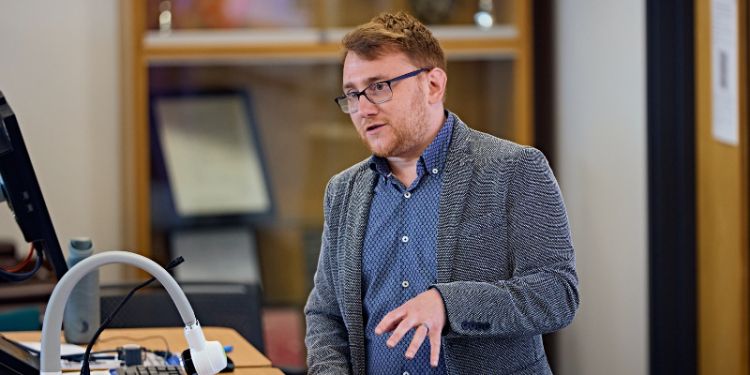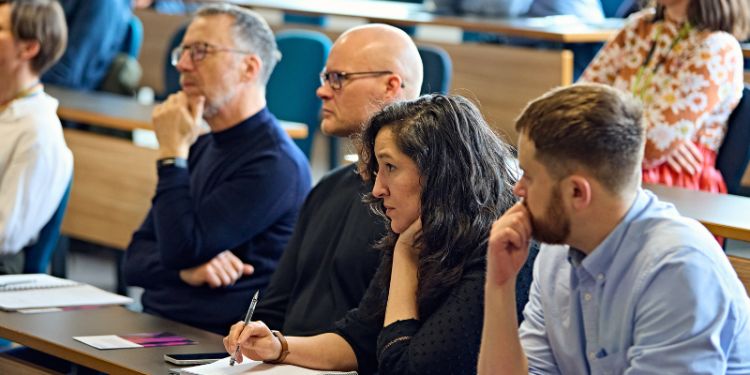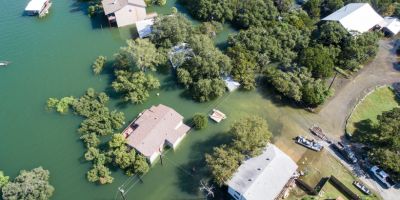Policing and our Climate Crisis: Reflections on the 2019-20 Black Summer Bushfires in Australia

On Thursday 7 March, the Centre for Criminal Justice Studies and the ESCR Vulnerability & Policing Futures Research Centre hosted a lecture on policing and climate change.
‘Climate change is the defining crisis of our time’, said Antonio Guterres, Secretary General of the United Nations, and it is also happening even more quickly than we feared. As some of the predicted climate events will be irreversible even if we make major efforts to curb global warming, it is crucial to strategize in advance in order to be prepared to cope with it to the best of our abilities.
Accordingly, under the UNFCCC and the Paris Agreement, states are required to develop disaster risk reduction (DRR) and climate adaptation plans (CAP) to enhance adaptive capacity, strengthen resilience, and reduce vulnerability to climate change, with the aim of contributing to sustainable development and ensuring an adequate adaptation response. Moreover, such plans should be based on a multi-level governance architecture, combining a whole-of-society and whole-of-government approach, based on the recognition that climate change is a challenge that can only be tackled better if everyone plays their part.
Police actors are often at the forefront of emergency management, and in such contexts, they may act as facilitators and enablers of community capacity-building. They may also rely on decentralized and distributed networks and webs of actors at local, regional, and national levels, whose interactions collectively can provide proper and quick responses to risks, accidents, and disasters. It is therefore natural to ask what role police actors play in the context of climate events, how they adapt to the complex risks of climate change, and how police are integrated within DRR strategies and CAPs.
Well-placed to shed light on these topical policing issues was the guest speaker, Jarrett Blaustein, Associate Professor and Director of Education in the School of Regulation and Global Governance (RegNet) at the Australian National University. His current work draws on ideas of regulation and nodal governance to explore how different policing networks and actors around the world are adapting to the risks, harms, and crises associated with climate change, and what this means for the future of policing.
In particular, he investigates the emerging paradigm of ‘resilience policing’ that, by challenging the traditional understanding of policing actors as concerned with the governance and delivery of everyday security in contexts of ecological and societal stability, identifies them as agents in the governance of existential threats, such as global warming.
Blaustein’s lecture, entitled ‘Policing and our Climate Crisis Reflections on the 2019-20 Black Summer Bushfires in Australia’ explored the role played by the police in the face of the bushfires crisis. Between July 2019 and March 2020, 15,000 fires scorched more than 24 million hectares of land, threatening especially remote rural communities of the East Gippsland in the state of Victoria (Australia).
By reviewing the steps undertaken by police officers in East Gippsland to contribute to successful bushfire season preparedness, Jarrett pointed out that the operation was the result of lessons and institutional reforms from previous high-profile disasters. According to his research, there is a well-documented history of bushfire management in Victoria, and the police have long played a role in supporting disaster response efforts, most notably in the Black Saturday bushfires of 2009.
Such events, and a series of government inquiries into flood preparedness, contributed to significant reforms in Victoria's emergency management system. In particular, they created the basis for the establishment of an architecture that supported and benefitted from active and sustained police involvement in emergency management networks, especially at the local level. In such a new frame, local sergeants were granted greater autonomy and opportunities to actively participate in local communities’ forums, where emergency management planning occurs, to engage in partnerships.
According to Blaustein, police officers were thus well positioned to support disaster preparedness, response, and recovery efforts during the 2019–2020 Black Summer Bushfire. In particular, he highlighted the ability of police officers to perform a stewardship function that helped maintain a space for residents to participate in disaster planning and engage with key stakeholders, thus applying a multilevel governance architecture deemed crucial to enhance adaptive capacity and strengthen community resilience.

Blaustein also mentioned the importance of ‘boundaries crossing’, such as the ability to break from business-as-usual roles to engage with unconventional services requiring distinctive mentalities, skills and knowledge. The latter were negotiated and shaped by ongoing interactions between policing actors and local networks working to govern a broad array of community safety problems. Ultimately, the operation was successful because police officers had a vulnerability assessment and risk communication strategy in place based on a consultative approach and respect for residents' autonomy and capabilities, rather than direct intervention.
In summary, although policing is not going to solve climate crises, the model of resilience policing applied by the police in Victoria to manage the Black Summer bushfires supports the argument that policing actors, within a permissive operating environment, can contribute to strengthening the resilience and adaptive capacity of communities towards climate change. It also offers an attractive alternative to top-down or libertarian approaches to crisis management.
Blaustein’s lecture was followed by comments from experts in the field. First, Dr Julie Berg, Senior Lecturer in Criminology at the University of Glasgow and Director of the Scottish Centre for Crime and Justice Research (SCCJR), offered her invaluable complementary thoughts.
In particular, she constructively questioned the potential for replication of such a model globally by emphasizing the need to supply redundancy, while also defending the importance of having a fulcrum of action to ensure coordination. The case study is indeed an archetypical example of a functional resilience policing model. However, as acknowledged by Blaustein, this succeeded because of the unique characteristics of the remote rural policing environment.
Berg also raised questions around the ability of such model to provide a proper response to managing complex poly-crises or for governing security across multiple intersecting temporalities (the everyday, the emerging and the existential). In particular, she considered the scenario of a slow-burning climate crisis, in which crisis becomes normalised over time, rather than being perceived as a punctuated emergency. Taking all this into account, she suggested that, in addition to embedding the model in a whole-of-society approach, we should think more in terms of principles and guidelines that need to be in place.
The second comment came from Suraje Dessai, Professor of Climate Change Adaptation at the Sustainability Research Institute, University of Leeds. Dessai reflected on the UK National Adaptation Plan (NAP). He argued that the latter is still anchored in the Climate Change Act 2008, applying a two-stage approach (climate assessment and planning), and lacks proper long-term solutions.
Moreover, the UK NAP is particularly under-resourced, despite the increasingly disruptive effects of global warming, and policing actors have not been addressed as potential key agents of resilience and adaptation. He finally encouraged more research on the resilience policing model in the face of climate change, suggesting that this under-researched area deserves proper attention and consideration for future DDR plans and CAPs.
The lecture was attended by a wide range of academics and students. Those present contributed to an engaging and thought-provoking discussion, with questions raised concerning the capacity of the police to address the needs of indigenous communities, their conflictual role towards environmental defenders, and the notion of adaptation, resilience, and climate change as conceived under the UNFCCC and related climate negotiations.
The event was very well received, and warm thanks were offered to the speakers for their valuable contributions.
Erika Moranduzzo is a postgraduate researcher in the School of Law. Currently in the second year of her PhD, her thesis investigates the potential paths of legal protection for migrants moving across international borders because of the adverse effects of climate change from a human rights perspective, rooting her work in principles elaborated within the notion of climate justice.




